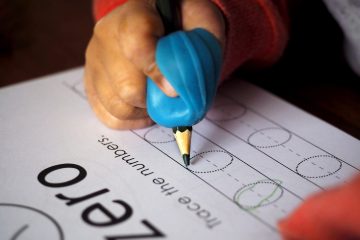
I noticed in the newspaper the other day that registration for kindergarten is beginning next month in a nearby school district. Apparently students now have to be 5 years old by September 1st if enrolling for the 2012-2013 school year. So, it looks like the Kindergarten Readiness Act of 2010 is finally taking affect for the coming school year in California. When I checked to see what the kindergarten cut-off dates were in other states, I found that a majority of U.S. states appear to already have birth date requirements in August and September. It surprised me that California hadn’t done this sooner.
What is the Kindergarten Readiness Act? It’s a new law in CA requiring the birthday cut-off date for kindergarten moved from December 2 to September 1 by the 2014-2015 school year. It’s supposed to only roll back one month per year beginning in 2012, but apparently many school districts are opting to just jump ahead to the September 1 date and avoid any confusion.
Additionally, the statute mandates that schools offer transitional kindergarten (TK), a voluntary 1st year of a 2 year kindergarten experience, for children who fall into the “gray area” with a 5th birthday between September and December. This amounts to about 130,000 four-year-olds in California this year. The argument is that a year of kindergarten readiness will improve student achievement and narrow the achievement gap (of course, someone wants to make sure test scores continue to rise). Also, children who start school too young not only have less academic and social preparation, but they tend to struggle to keep up with their older classmates. Transitional kindergarten sounds like a great fix, if schools can get the funding needed to actually implement it.
What do educators think about the Kindergarten Readiness Act? I have read numerous articles and spoken to several teacher friends and can sum it up with this: “It’s about time!” Teachers feel the pressure of meeting academic standards (yes, even in kindergarten). They are relieved that the “burden” of having four-year-olds who are not prepared to begin school will be eased, making their jobs a little bit easier. Also, many schools now start in July or August, making that many more four-year-olds in the classroom than when school started in mid-September. One kindergarten teacher informed me that her kindergarten students are expected to know all of their letters, sounds, and basic sight words by December, when they are already blending and segmenting phonemes in words. The older children are ready for this, but the students with later birthdays “are USUALLY the ones that are having the most trouble, both academically and socially.”
 Kindergarten is much different now than it used to be. It has a much more academic focus. One teacher commented, “With the rigorous standards, there isn’t room for socialization” anymore. Another teacher friend of mine won’t even put her own child into public Kindergarten, because she wants him to enjoy a well-rounded curriculum with art, music, PE, and the smaller class size that only private schools seem to be able to manage now.
Kindergarten is much different now than it used to be. It has a much more academic focus. One teacher commented, “With the rigorous standards, there isn’t room for socialization” anymore. Another teacher friend of mine won’t even put her own child into public Kindergarten, because she wants him to enjoy a well-rounded curriculum with art, music, PE, and the smaller class size that only private schools seem to be able to manage now.
I visited the CA Department of Education website to look at the particulars. I was happy to see that exceptions can be made to the law. Under the Kindergarten Readiness Act, a child born after September 1 can still be admitted to kindergarten on a case-by-case basis, if the parent applies for early admission AND the school district agrees it would be in the best interest of the child.
Why do I care about this? Yes, my children are well beyond kindergarten, but if this law had passed before my youngest had started kindergarten, I would have had a problem with it. She has a late September birthday, but was ready for kindergarten when school started just after the 4th of July and she was still four years old. She could count past 30 and knew most of her letters and sounds when she began, and two years of preschool had already primed her social development. Fast forward ten years, and here she is ready to graduate from high school in three years instead of four, with her sights set on getting a PhD in a math or science field. I can’t even imagine how much it would have held her back if we hadn’t been able to enroll her in kindergarten until the following school year. Yes, there are exceptions to every rule.
It still amazes me that kindergarten can have academic standards and not be mandatory. I checked online and found that each state has its own attendance laws that specify at what age schooling is mandatory, with ages ranging from five to eight years old. So kindergarten is mandatory in some states but not in others. Apparently this is the case world-wide as well, with many countries offering kindergarten as part of preschool, and some requiring it while most do not.
If you have a 4-year-old and are looking to enroll soon, be sure to check with your local school district for their enrollment requirements. And be ready for the tears to fall when you watch your baby walk into that classroom for the first time….


